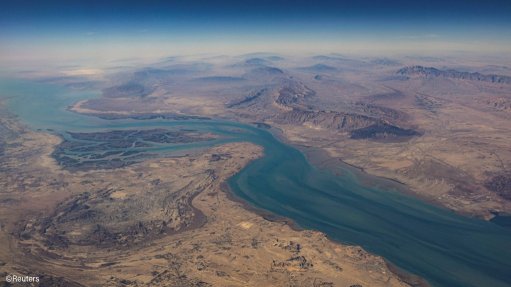Breathing life into carbon credits
The National Treasury released a ‘Consultation Paper: Developing the South African Carbon Credit Market’ on October 29, inviting stakeholders to submit comments through a 30-question online questionnaire by December 1.
South Africa is committed to reducing carbon emissions, having adopted a market-based strategy. Market-based economic instruments, such as the carbon tax introduced in 2019, have incentivised businesses to reduce carbon emissions by imposing financial penalties on greenhouse-gas emissions. Carbon offsets play a crucial role in the carbon tax framework, supporting a market-based strategy.
The paper outlines steps to improve the carbon tax offset market, with a view to assisting companies in reducing their emissions. Following the publication of the ‘Phase 2 Carbon Tax Discussion Paper’ and announcements in the 2025 Budget, there is greater certainty now about the path of the carbon tax. This provides a basis for taking forward work on developing a robust complementary carbon market.
The consultation paper highlights several challenges that hinder the effective operation of the South African carbon market, in both the voluntary and compliance sectors. These challenges encompass policy and regulation, market architecture, and the financial regulatory framework. Moreover, the paper offers recommendations for addressing the key challenges identified. Overall, the recommendations seek to modernise the carbon credit infrastructure, clarify legal and financial regulations, and stimulate investment in South Africa’s low- carbon projects. By reinforcing policy certainty, reducing administrative barriers and enhancing the roles of financial institutions and regulatory bodies, the reforms aim to develop a resilient, high-integrity secondary market for carbon credits.
The seven recommendations are: defining the legal nature of carbon credits; reforming the registry architecture; introducing appropriate standards and local capacity; adjusting financial market regulation; developing an exchange control framework; ensuring market integrity and efficiency; and linking to broader climate policy objectives.
• Defining the legal nature of carbon credits: Provide legislative clarity on the legal attributes of carbon credits, confirming their intangible and incorporeal status, and enabling ownership and transferability. Recognise carbon credits as capable of forming part of recognised financial instruments, aiding banks and financial intermediaries to conserve less regulatory capital when holding or trading them.
• Reforming the registry architecture: Consider dedicating the Carbon Offset Administration System or another improved national system to tracking and approving credits for Internationally Transferred Mitigation Outcomes in line with the Paris Agreement. Ensure domestic registries can operate in accordance with international crediting standards and central securities depositories, thereby improving cross-border liquidity and trading.
• Introducing appropriate standards and local capacity: Develop cost-effective certification standards tailored to South African conditions, reducing reliance on purely international methodologies that may exclude viable local project types. Empower the South African National Accreditation System to accredit local validators and verifiers, lowering certification costs and delays for project developers.
• Adjusting financial market regulation: Encourage active oversight by financial sector regulators to strengthen market integrity, improve transparency and protect participants. Engage with international standard setters to lower risk weightings for carbon credits, encouraging banks to participate without incurring disproportionate capital charges. Treat carbon credits as ‘unlisted securities’ under the Financial Markets Act, thereby allowing over-the-counter trading, clearing and settlement through regulated infrastructure.
• Developing an exchange control framework: Establish clear exchange control provisions for voluntary carbon credits, enabling South African and international entities to invest, trade and hedge carbon credit positions without undue administrative barriers. Ensure consistency in how carbon credits or associated derivatives, such as futures and options, fall within existing exchange control rules.
• Ensuring market integrity and efficiency: Align new carbon market developments with established financial-sector principles, including fair access, transparent price discovery, robust clearing and settlement processes. Foster an environment where both domestic and international participants can trade carbon credits, benefiting from sufficient liquidity and robust governance.
• Linking to broader climate policy objectives: Coordinate these recommendations with the ongoing carbon tax policy process to ensure consistency in offset rules and compliance obligations.
The online questionnaire is accessible at https://forms.office.com/r/dfUdeeu5Ee
Article Enquiry
Email Article
Save Article
Feedback
To advertise email advertising@creamermedia.co.za or click here
Announcements
What's On
Subscribe to improve your user experience...
Option 1 (equivalent of R125 a month):
Receive a weekly copy of Creamer Media's Engineering News & Mining Weekly magazine
(print copy for those in South Africa and e-magazine for those outside of South Africa)
Receive daily email newsletters
Access to full search results
Access archive of magazine back copies
Access to Projects in Progress
Access to ONE Research Report of your choice in PDF format
Option 2 (equivalent of R375 a month):
All benefits from Option 1
PLUS
Access to Creamer Media's Research Channel Africa for ALL Research Reports, in PDF format, on various industrial and mining sectors
including Electricity; Water; Energy Transition; Hydrogen; Roads, Rail and Ports; Coal; Gold; Platinum; Battery Metals; etc.
Already a subscriber?
Forgotten your password?
Receive weekly copy of Creamer Media's Engineering News & Mining Weekly magazine (print copy for those in South Africa and e-magazine for those outside of South Africa)
➕
Recieve daily email newsletters
➕
Access to full search results
➕
Access archive of magazine back copies
➕
Access to Projects in Progress
➕
Access to ONE Research Report of your choice in PDF format
RESEARCH CHANNEL AFRICA
R4500 (equivalent of R375 a month)
SUBSCRIBEAll benefits from Option 1
➕
Access to Creamer Media's Research Channel Africa for ALL Research Reports on various industrial and mining sectors, in PDF format, including on:
Electricity
➕
Water
➕
Energy Transition
➕
Hydrogen
➕
Roads, Rail and Ports
➕
Coal
➕
Gold
➕
Platinum
➕
Battery Metals
➕
etc.
Receive all benefits from Option 1 or Option 2 delivered to numerous people at your company
➕
Multiple User names and Passwords for simultaneous log-ins
➕
Intranet integration access to all in your organisation

















